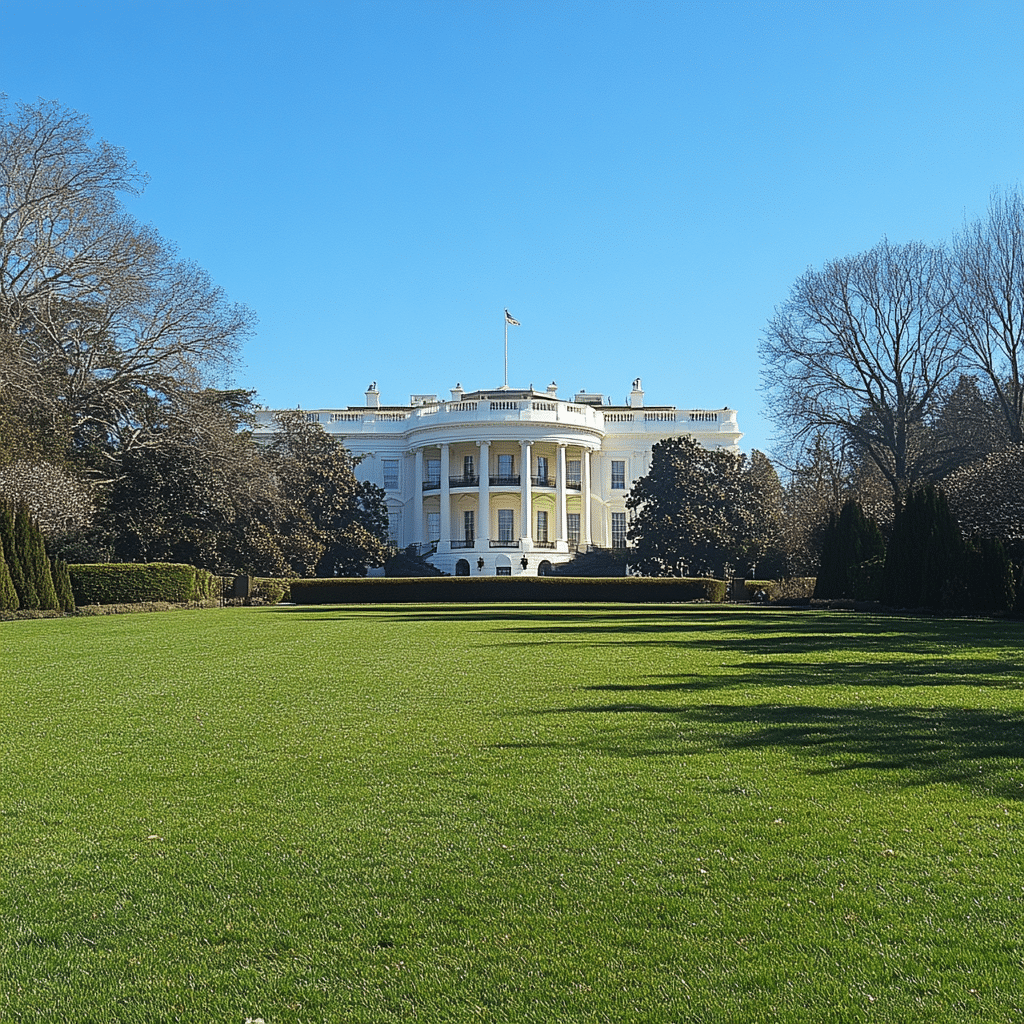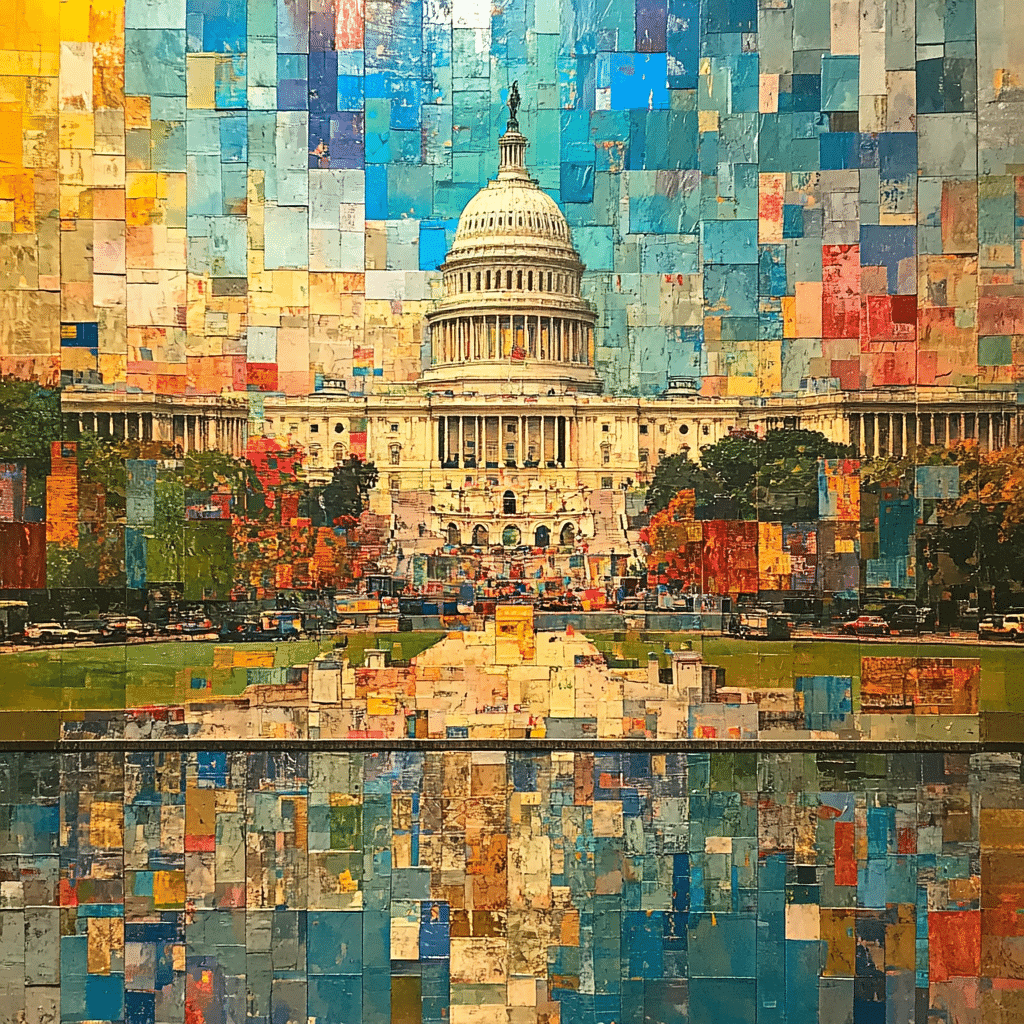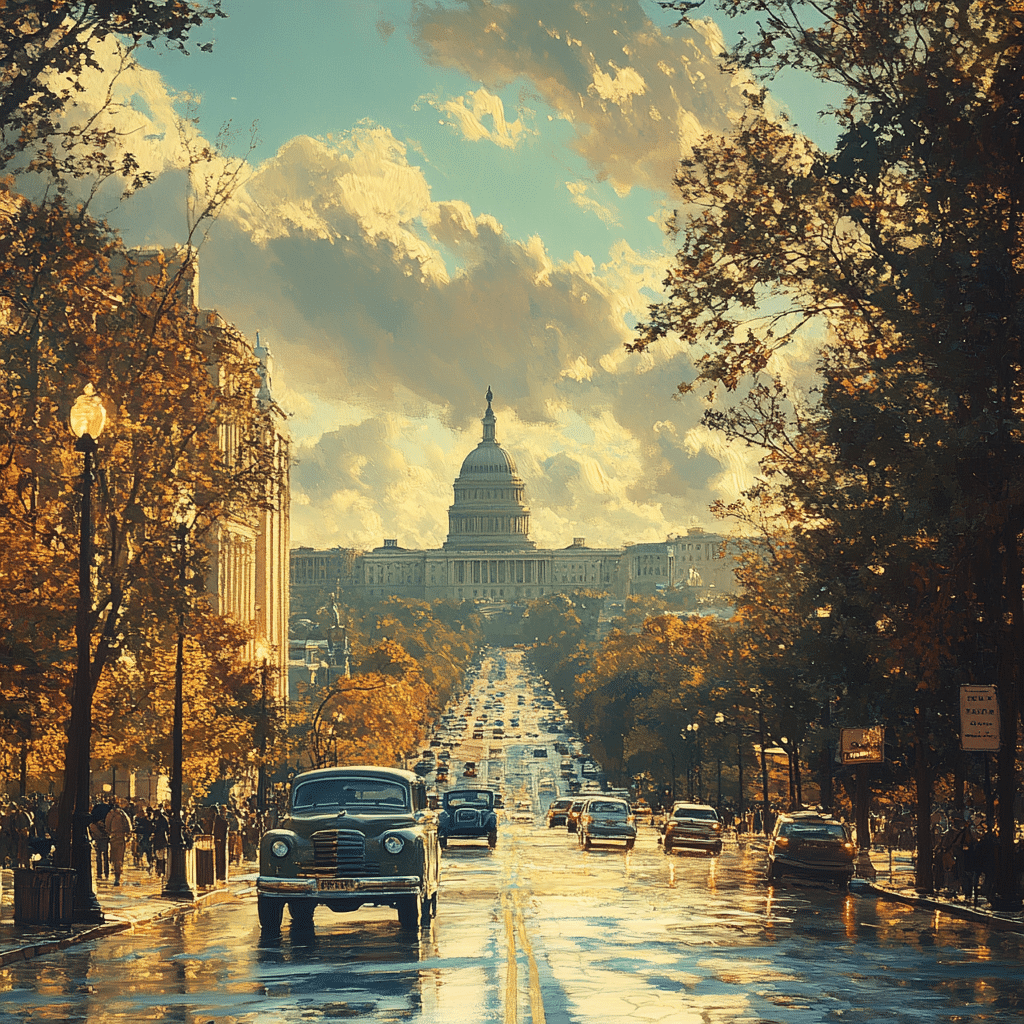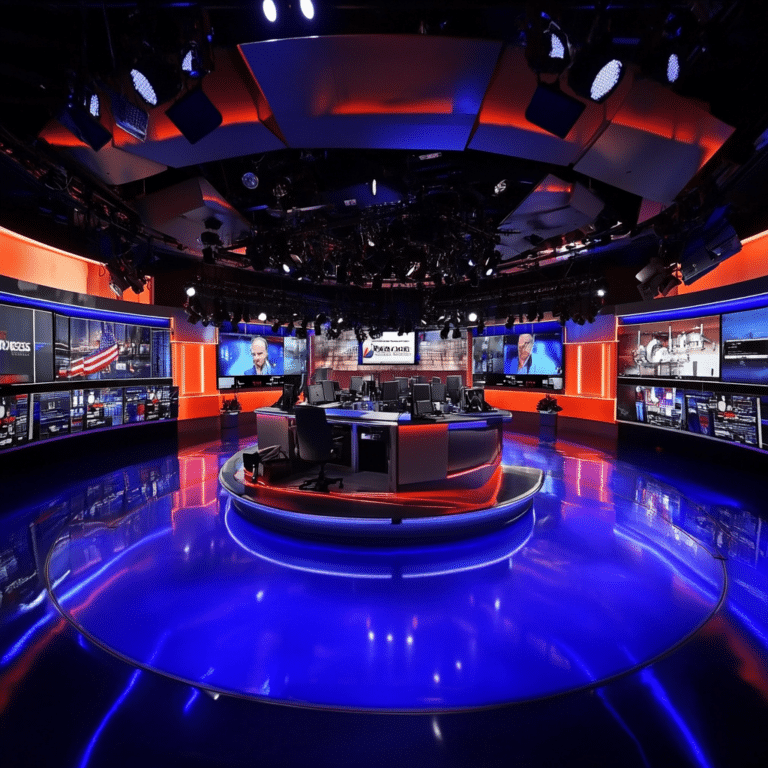Washington D.C. news is buzzing with reports on a growing housing crisis and alarming population decline. D.C., often seen as a hub of power and opportunity, is facing some tough realities. The housing market has become practically unaffordable for the average resident, with the median home price skyrocketing to over $750,000. This pricing trend puts the city among the most expensive in the U.S., leaving many locals shaking their heads in disbelief. You have to wonder, where’s the relief for hardworking Americans? Meanwhile, rental prices aren’t any better, with one-bedroom apartments averaging around $2,500. These dire conditions have set off a firestorm of discussions among residents and policymakers about the sustainability of living conditions and socioeconomic diversity within the district.
The Growing Housing Crisis in Washington, D.C.
D.C.’s housing market is in a state of emergency, driven by a confluence of factors. It’s clear that we haven’t been building new housing fast enough to keep up with demand, as noted by Salviati, an expert on the matter. The city’s housing shortfall has persisted for years, leading to price increases that can become downright problematic for many households. Whether you’re a young professional or a growing family, finding a place to live in D.C. is an uphill battle.
This surge in housing costs is not just an inconvenience; it’s a matter of life quality. WUSA 9 reports that potential newcomers see D.C. as a less appealing destination compared to other cities, where they might find better housing options for their budgets. It is essential to note that this crisis doesn’t just affect low-income families; even middle-class workers are feeling the pinch. Residents are voicing their frustrations, and local leaders are standing up to confront this crisis head-on.
As D.C. wrangles with its ever-growing housing dilemma, the question remains: what can be done to alleviate this crisis? One could look to cities that have managed to foster growth through innovative policymaking, being proactive and keeping the essentials in sight. A robust strategy for planning and development needs to be at the forefront of discussions in Washington if progress is to be made.

Top 5 Contributing Factors to Population Decline in D.C.
Let’s get straight to the heart of the issue: why is D.C. witnessing a drop in its population? Here are the top five reasons that are driving this trend:
The sky-high housing prices and rents are outright driving folks away. Just think about the hurdles new families face—it’s no wonder more people are exploring options in cities like Portland, Maine, where the living costs are significantly more manageable.
The pandemic created a seismic shift toward hybrid and remote work setups. Many folks aren’t tied to their physical offices anymore. Cities like San Diego present attractive alternatives, where tech professionals can revel in lower living costs without sacrificing their careers.
Crime rates are climbing, public transportation struggles to keep pace, and underfunded services are a real downer for many residents. Reports from the New York Times detail how these concerns lead people to seek better alternatives in more peaceful locales.
Families place immense value on educational opportunities. With consistently lower public school rankings in D.C., parents are motivated to leave for suburbs or states with solid educational systems—Cape Cod being a prime example.
Anyone who’s driven in D.C. knows the traffic can be a nightmare. Heavy congestion and lengthy commutes are pushing folks to consider places with improved transit solutions, like Lewiston, Maine, where life is slower, and getting around is effortless.
As you can see, each of these factors creates a ripple effect, making it increasingly tough for D.C. to maintain its population. Without meaningful interventions, the future could be bleak for the capital.
Local Government Responses and Policy Revisions
Local officials are scratching their heads and racing against time, looking for ways to confront this crisis before it spirals out of control. They’re taking measures to tackle the housing crisis by promoting more construction. Zoning reforms are on the table to encourage denser development, especially affordable housing—a real need in this city.
Public-private partnerships also present viable paths for progress. Encouraging collaboration can result in efficient housing solutions that benefit both the community and the developers. The new strategies aimed at revitalizing the housing landscape have begun to take shape, but they’ll need strong community backing to succeed.
Residents are voicing their opinions, and local leaders are responding. The combination of visionary policy-making and grassroots support might just be the formula D.C. needs to counteract these pressing challenges.

Comparative Analysis: Urban Housing Crises in Other Cities
Let’s take a look beyond our city for some context. It’s crucial to understand that D.C. is not alone in its housing struggles. Take San Diego, for instance. They’re tackling their housing crisis through innovative zoning laws that promote the construction of accessory dwelling units (ADUs). This could be a solution that’s worth examining for D.C.
Meanwhile, Portland, Maine is experimenting with cooperative housing models as a countermeasure to sky-high living costs, showcasing another potential strategy for our nation’s capital. Learning from the successes and setbacks of these cities can provide valuable lessons that D.C. could greatly benefit from.
Comparative analyses like these unveil alternative strategies and prompt discussions on practical designs for housing innovation. It’s about time D.C. turns such wisdom into action for the good of its residents.
Appeals to Potential Residents: Can D.C. Attract Back Its Outflow?
Despite the challenges, Washington D.C. has a wealth of cultural and professional opportunities that can still draw people in. But here’s the kicker: how will the city adjust its housing policies to be more inclusive and affordable? That question hangs in the air.
As we look to cities like San Diego and Portland, we recognize that ambitious strategies need to make their way into D.C.’s framework. Tackling the core issues behind housing accessibility will be paramount in ensuring sustainable growth and stability. But this isn’t just about policies; it’s about real people’s experiences.
So, what does the future hold for D.C.? If local government can revamp its approach, perhaps residents and potential newcomers can witness a revitalization that makes the city thrive once more. The key lies in embracing innovative ideas, just like those being pursued in Portland, Maine news—actively reshaping the city’s day-to-day livability.
With all these factors at play, Washington D.C. stands at a pivotal moment. The potential exists, but will the city seize the opportunity before it slips away? The answer to that question will likely shape the future of the nation’s capital. If D.C. can learn from both local examples and those across the country, it has a fighting chance to overcome these housing challenges and attract its residents back, ensuring it remains a shining beacon of opportunity.
Washington DC News: Housing Crisis and Fun Facts You Might Just Love
Housing Blues and Population News
As Washington DC grapples with a housing crisis alongside a noticeable decline in its population, it’s interesting to note how dynamic the political environment around these issues can be. For instance, did you know that the world’s largest cruise ship recently made waves in maritime news? It’s a staggering reminder of how urban life can sometimes feel like a massive, luxurious ship—filled to capacity with amenities but, unfortunately, not adapting swiftly to the needs of all its passengers, or residents, as is evident in today’s DC news.
In other quirky news, the city hosts a vibrant culture that often melds serious topics with light-hearted moments, like the iconic Because I Got High track that people still groan and chuckle to at gatherings. Its lyrics serve as an anthem for many—but let’s be real, there are better ways to handle stress than getting too high (wink). Such cultural references remind us that the social pulse of Washington DC remains robust even amidst the housing challenges.
The People Behind the News
Let’s not forget the personalities that shape Washington DC news. Have you ever come across the story about the Governor Of South Dakota making headlines during tough discussions around housing and welfare? The intersection of leadership and community has never felt more relevant. Meanwhile, the tragic story surrounding Adan Canto’s death highlights just how interconnected our lives are, prompting DC locals to engage in deeper conversations around social issues.
And speaking of connections, local churches are pivotal in providing community support. If you’re curious, here’s a quick tip: searching for iglesias Cristianas Cerca de mi can lead you to some great community resources, helping bridge gaps between different populations in need. In a city filled with political discourse, it’s these human stories that give Washington DC news its character and warmth.
Trivia that Sparks Curiosity
While the city’s infrastructure is in the limelight, let’s sprinkle in some fun trivia! Did you know Jerry Lee Lewis had a fascinating life accompanied by many partnerships? His spouse certainly played a significant role in his personal journey, just as many families are navigating their unique dynamics amid the housing crisis. Additionally, if you’re into memes, the George Floyd meme circulated online had a profound impact, encouraging activism and awareness in younger generations.
In a lighter vein, Jack Hibbs often brings a spirited atmosphere to discussions around faith and community values. It’s a good reminder that optimism can thrive even in challenging times. So, whether it’s about exploring the intricacies of DC’s housing scene or diving into cultural trivia, staying informed on Washington DC news means engaging with both the struggles and the stories that keep the community vibrant.

Why is living in DC so expensive?
Living in D.C. is pricey mainly because there aren’t enough new homes to meet the growing demand, driving up prices significantly and making it tough for many families to find affordable housing.
Why did Washington, D.C. population decline?
Washington, D.C. saw a notable drop in population in 2020, losing around 18,000 people mainly because folks were leaving the city, likely seeking more affordable living situations or a change of scenery.
Is Washington, D.C.. in Maryland or Virginia?
Washington, D.C. isn’t in Maryland or Virginia; it’s its own unique federal district, having been separate from those states for over 200 years.
What channel is CBS Washington, D.C.. on?
CBS Washington, D.C. can be found on channel 9.
What is a livable salary in DC?
To comfortably live in D.C., a salary of around $70,000 to $80,000 is often mentioned as a rough benchmark, but it can vary greatly depending on individual circumstances and lifestyle choices.
Why is Washington, DC crime rate so high?
The crime rate in Washington, D.C. is relatively high, which can be attributed to a mix of factors including economic inequality, poverty, and a history of crime-related issues in certain neighborhoods.
Why are people moving out of DC?
Many people are moving out of D.C. in search of more affordable living options, better quality of life, and perhaps less congestion, especially since remote work has become more common.
Why did blacks move to DC?
Historically, many Black individuals moved to D.C. during the Great Migration, seeking better jobs and opportunities, as well as a chance to escape the oppressive conditions faced in the South.
What percent of DC lives in poverty?
About 17% of people in D.C. live in poverty, which reflects the challenges many families face amidst the rising cost of living.
Why did DC give land back to Virginia?
D.C. returned some land to Virginia to help create Arlington County, aiming for better governance and accessibility for residents in the area.
Why is it called the District of Columbia?
The name “District of Columbia” comes from Christopher Columbus, and it reflects the district’s status as a unique federal area created to house the nation’s capital.
Who owns District of Columbia?
The District of Columbia is owned by the federal government, but local government officials manage its day-to-day operations.
What channel is Fox DC on?
You can catch Fox DC on channel 5.
What soap is on CBS?
On CBS, the soap opera “The Young and the Restless” airs, featuring drama and compelling storylines.
Who owns WUSA?
WUSA, the CBS affiliate in Washington, D.C., is owned by Tegna Inc., which operates various media brands across the country.
Can you afford to live in DC?
Living in D.C. can be tough for many, especially due to the high cost of housing, rising living expenses, and challenges finding affordable options within the city.
Why do rich people live in DC?
Rich people often live in D.C. because it’s a hub for politics, business, and influence, providing access to networking opportunities and high-paying positions.
Why is it so hard to live in DC?
Living in D.C. can be hard due to the steep cost of housing, competitive job market, and the fast-paced lifestyle, which isn’t for everyone.
Is DC the most expensive city in the world?
While D.C. is one of the most expensive cities in the U.S., it doesn’t hold the title as the most expensive city in the world; cities like Hong Kong and Singapore are often ranked higher.





































